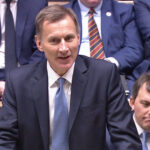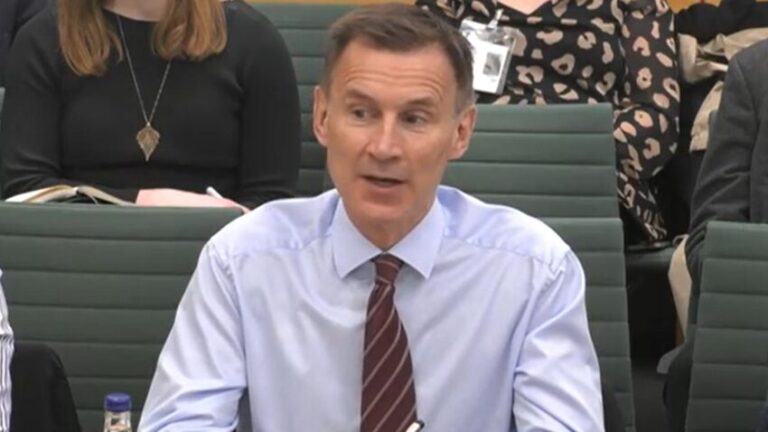[ad_1]
The UK is on course to avoid a recession this year as wage growth outpaces price inflation and interest rates are expected to have already peaked.
The EY Item Club raised its forecast for economic output growth to 0.6 per cent, an upgrade from the 0.4 per cent forecast in July. Falling energy and food prices mean that inflation is on track to fall to about 4.5 per cent by the end of this year, faster than a previous forecast of just under 5 per cent, and hit the Bank of England’s key 2 per cent target by the second half of next year.
Wage growth will ease but inflation should cool even more, EY has forecast, which should lift household spending. The report was produced before the conflict between Israel and Hamas.
The more optimistic forecasts come after the Office for National Statistics upgraded historical GDP data to show that the economy had expanded by 1.8 per cent since the onset of the Covid-19 crisis, faster than Germany and France. Previously GDP was estimated to still be 0.2 per cent lower.
Easing price inflation should mean that the Bank of England’s monetary policy committee will hold rates again when it meets next next month, EY said. The committee decided to maintain interest rates at 5.25 per cent last month after putting through 14 consecutive increases since the end of 2021.
Investment by businesses has also been more robust and is forecast to grow at 5.9 per cent this year, the highest rate since 2016 and significantly better than the 1.4 per cent forecast in July.
Martin Beck, chief economic adviser to EY Item Club, said: “While recent industry surveys have been fairly gloomy about the UK economy, there have been enough positive developments, including upwards revisions to past data, to lift the mood music and reduce the danger of recession becoming a self-fulfilling prophecy.”
There are, however, still “prominent risks” to forecasts, he said, including potential volatility in both oil and gas prices and higher interest rates. Economists downgraded their GDP growth forecast for next year to 0.7 per cent, below the 0.8 per cent that had been expected in the summer, as the pressure of increased borrowing costs filters through to consumers and businesses.
The EY Item Club estimates that higher interest rates have been a net positive for households with the income boost on savings accounts exceeding the extra spent on mortgage interest payments. The scales are due to tip next year, however, as deposit rates stabilise and more borrowers roll over fixed rate mortgages on to higher rates.
That should also weigh on the housing market, where prices are expected to fall by about 10 per cent from peak to trough, flatlining this year and sliding an average 4 per cent next year.
There is less chance of a more serious correction in the housing market, the EY economists said. The ratio between the average house price and incomes has declined, indicating better affordability, and lenders are likely to allow borrowers to temporarily postpone mortgage payments rather than foreclosing.
The economists added that a sharp drop in inflation and subdued growth could open the door for the Bank to start lowering interest rates in May next year. Hywel Ball, EY UK chairman, said: “There’s no getting away from the fact that growth will be limited in the short term but there are reasons for optimism for next year and beyond.”
[ad_2]
Source link






















0 Comments